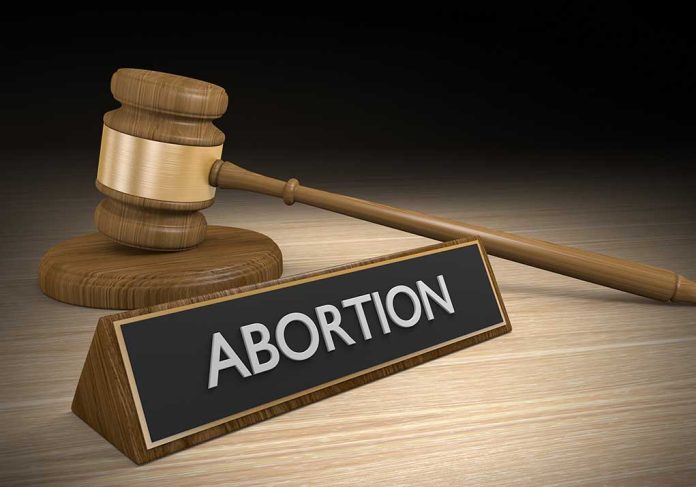
Colorado Democrat Julie McCluskie has sparked outrage by promoting a new abortion bill that touts killing unborn babies as a cost-saving measure compared to the expense of childbirth.
Key Takeaways
- Colorado Senate Bill 183 requires Medicaid and public employee insurance to cover abortion services starting in 2026
- Bill sponsor Julie McCluskie explicitly stated cost savings would come from “averted births” due to abortions
- The legislation implements Amendment 79, which established a constitutional right to abortion in Colorado
- Annual cost for covering abortions is projected at $5.9 million but expected to be offset by savings from fewer births
- Critics argue the bill dehumanizes unborn children and underestimates the true cost of abortion procedures
Democrats Push Government-Funded Abortion Bill
Colorado lawmakers are advancing legislation to provide taxpayer funding for abortions after voters removed a previous restriction. Senate Bill 183, which has already passed the Senate and the House Health and Human Services Committee, would require Medicaid, Child Health Plan Plus, and public employee insurance plans to cover abortion services. The bill implements Amendment 79, which established a constitutional right to abortion in Colorado and was approved by 62% of voters in a recent election.
Unbelievable! Said it outloud! Abortion save the state money,so we should have the state pay for all abortions.Sad day in Colorado. https://t.co/JgPkClXCcf
— James Barry (@JamesMBarry) March 26, 2025
The controversial legislation would take effect in 2026 and aims to reduce reliance on federal reimbursement for reproductive health care. State fiscal analysts project that while the bill would save the Colorado Department of Health Care Policy and Financing money, it would increase spending from the general fund. The estimated annual cost for covering abortions through Medicaid and other plans is nearly $5.9 million.
McCluskie’s Controversial Cost-Benefit Analysis
Julie McCluskie, a Colorado Democrat and Speaker for the House who co-sponsors the bill, has drawn sharp criticism for her economic justification of the legislation. In statements promoting the bill, McCluskie explicitly argued that the state could save money if women opted for abortions instead of giving birth, since births are more expensive than abortion procedures. Her comments have ignited fierce debate about the moral implications of such reasoning.
“That savings comes from the averted births that will not occur, because abortions happened instead. A birth is more expensive than an abortion, so the savings comes in Medicaid births that will not occur,” said Julie McCluskie.
McCluskie further emphasized that the bill “will actually decrease costs for our Healthcare Policy and Financing Department, our Medicaid expenditures in both this year and out years, as the savings from averted births outweigh the cost of covering reproductive health care for all Coloradans.” Despite the projected $1.5 million direct cost to the state, she repeatedly stressed the long-term financial benefits, describing her co-sponsorship of the legislation as “truly an honor.”
Opposition and Ethical Concerns
Critics of the bill have raised serious ethical and practical concerns about the legislation and its fiscal justification. The Colorado Catholic Conference argues that the fiscal note drastically underestimates the cost of abortions, particularly late-term procedures. According to Brittany Vessely of the Catholic Conference, the average late-trimester abortion costs around $3,000, significantly higher than the estimates used in the bill’s projections.
“The fiscal note drastically underestimates the cost of abortion, especially late abortion,” Vessely said. Vessely estimates the cost of a late-trimester abortion to be around $3,000.
Even supporters of abortion access have expressed discomfort with the financial justification. Jack Teter, regional director of government affairs for Planned Parenthood of the Rocky Mountains, stated that framing abortion coverage as a cost-saving measure feels inappropriate. “The premise that insurance coverage for abortion care is a societal good because it saves money on births doesn’t feel right to me,” Teter said. “Access to health care is good always.”
Looking Ahead
The fiscal note projects that more than 333,000 women in Medicaid or Child Health Plan Plus programs will potentially seek abortion care annually. Critics argue this approach could have long-term negative consequences for government programs that rely on a growing population of taxpayers, pointing to broader social and demographic implications beyond the immediate fiscal calculations.
As President Trump begins his second term, the Colorado legislation stands in stark contrast to more restrictive abortion policies being enacted in other states following the Supreme Court’s overturning of Roe v. Wade. The bill continues to advance through the Colorado legislature despite moral objections from various religious and pro-life organizations, highlighting the deep divisions that remain on this issue across America.
Sources:
- What will public funding for abortion cost Colorado? Analysts estimate impact as lawmakers weigh move.
- God Help Us: Colorado Democrat Makes Case for Killing Babies Because a Murder Is Cheaper Than a Birth – Video



